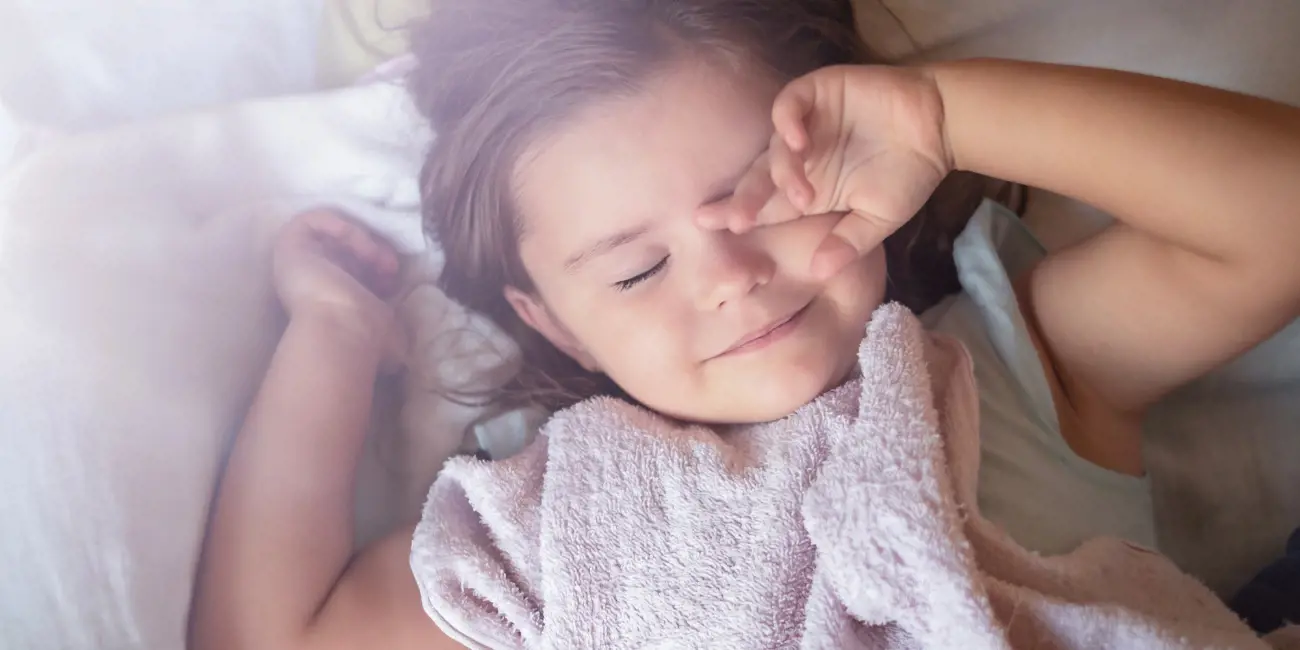Establishing healthy sleep routines is crucial for the overall well-being and development of children. One of the key factors in promoting good sleep habits is consistency, and this is where childcare can play a vital role.
Founder of Calm Babies, Carmel Morabito states that babies and children that come through her service and attend childcare are more likely to pick up sleep routines faster and get back on track after illness quickly due to the stability and consistency that childcare affords.
Childcare services provide an environment that supports a well-structured sleep routine, offering children the necessary elements for a peaceful rest.
Let’s explore the benefits of childcare in promoting healthy sleep routines at home, focusing on the importance of consistency and the role of comfort toys in aiding a child's sleep.
Consistency and structure
Childcare services operate on a daily routine, including designated nap times, which help children establish important and consistent sleep patterns. Consistency is key for young children, as it helps regulate their internal body clock, promoting better sleep.
When a child attends childcare regularly, they become accustomed to a set nap time, making it easier for them to adapt to a similar routine at home. By maintaining a consistent sleep schedule, parents can create an environment conducive to healthy sleep habits.
Sleep-inducing environment
Childcare services are very well-equipped to provide a sleep-inducing environment for children across many age groups. Quiet and calm areas, often with dimmed lights and soft music playing in the background create a soothing atmosphere that supports relaxation and encourages better sleep. Children often learn to self-settle, which can be one of the most challenging things to teach a child at home.
Exposing children to such an environment during their time at childcare can positively influence their sleep routines at home, as they learn to associate these cues with sleep.
Comfort toys and transitional objects
Comfort toys, such as teddy bears or blankets, can be a source of solace for children, especially when they’re away from home. These objects provide familiarity and emotional support, offering a sense of security and comfort.
Allowing children to bring their comfort toys from home to childcare during nap times can help ease any separation or other anxieties they may have.
The presence of a beloved toy can create a calming effect, allowing the child to relax and fall asleep more easily.

Peer influence and social learning
Children are highly influenced by the behaviours of their peers. When surrounded by other children who have already established healthy sleep routines, it will most certainly have a positive impact on a child's sleeping habits.
Watching their peers adhere to the nap-time schedule at childcare and engaging in quiet-time activities before they go off to sleep can motivate another child to do the same. The social aspect of childcare can reinforce the importance of sleep, leading to improved sleep routines at home.
Communication and collaboration
Childcare services maintain communication with parents and guardians, to ensure a collaborative approach to a child's sleep routine. After all, it's a joint effort and just as what happens at childcare can impact what happens at home, it's the same in reverse. It's just as important for you to communicate any change of routine, illness your child may have had that has impacted their sleep or indeed things like teething that can really shake things up.
Staff will share information about a child's nap duration, sleep patterns, and any things that have helped that child with sleep, including toys and other comfort objects.
This collaboration allows parents to replicate similar routines at home, aligning their efforts with those of the childcare service. By maintaining consistency between childcare and home environments, children are more likely to adapt and experience better sleep.
With the unique needs that babies and toddlers have and the individualised routines set at home, it can be tricky to navigate but, with the help of your childcare service, proper sleep for the whole family can be established.



































